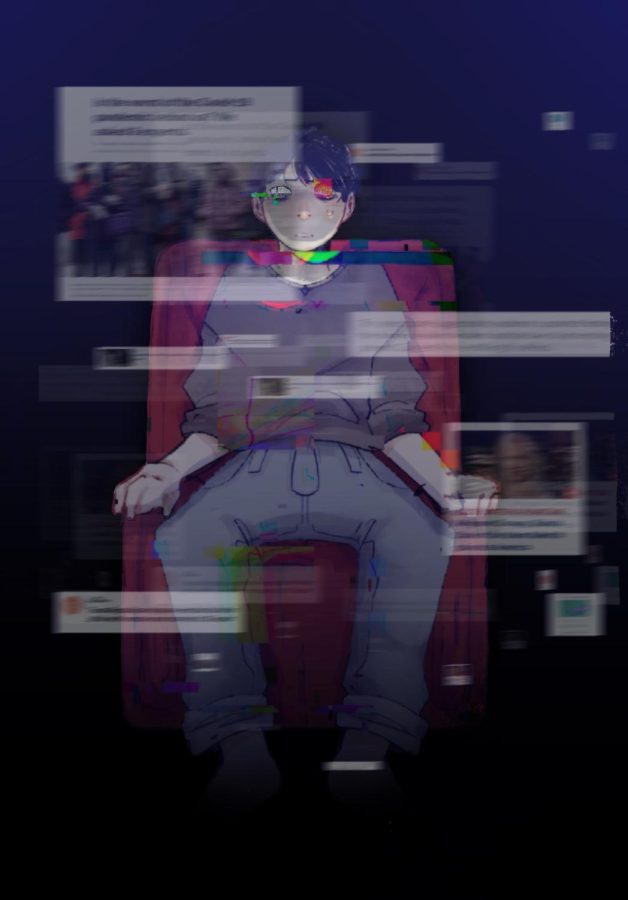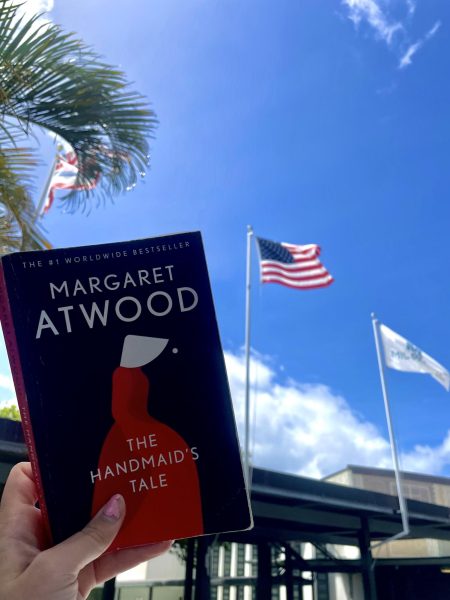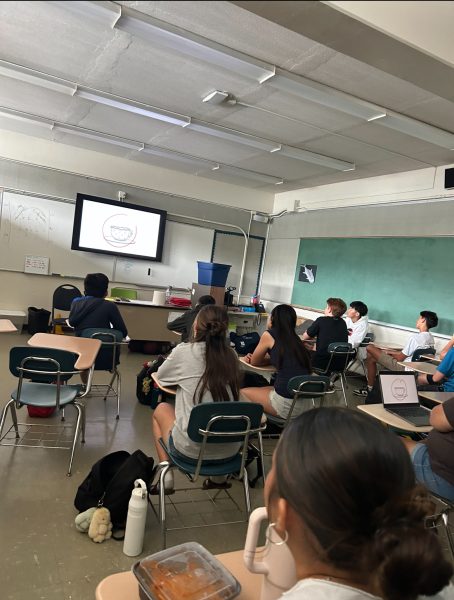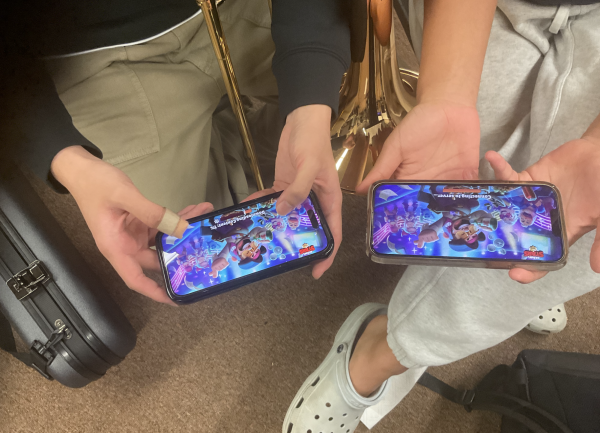There is more news than ever before. Why is that a bad thing?
Media consumer trapped in the news cycle, which can be vicious, unending and confusing.
By Joaquin Mejia
Staff Writer
As news grows more biased and addictive but less reputable in the eyes of the public, being an informed citizen becomes increasingly difficult. Everyone has become a media consumer yet few are informed.
The information age supplies people with an unlimited amount of news. But this infinite information stream does not come without consequence.
The effects of the new media can be represented in Plato’s allegory of the cave. Plato suggested that people are not perceiving reality. They are prisoners in a cave forced to watch shadows on a wall. However, once a prisoner escapes the cave they will see the sunlight and the world for what it is and become enlightened.
The opinions of the public are not a reflection of individual thought but a reflection of what is seen on the largest news networks.
How does one escape the cave and become informed? Being informed is getting an accurate representation of one’s community and the world we live in.
Staying in the know is a daunting task, especially with mass media which can be heavily opinionated.
The agendas and opinions of a given news outlet are driven by people’s need to have their beliefs validated.
“As soon as [people] hear something that they don’t want to hear they distrust sources,” said junior Solana Isgar.
But in an era of biased news it has become increasingly important to do what is not natural–listen to the other side.
“Hearing from people who I disagree with is a really important aspect of questioning my beliefs and my knowledge; you don’t know what you don’t know,” said Librarian David Wee.
Above all else, recognizing the presence of bias in news is the most valuable trait a consumer can have.
“I think the most important thing of consuming media is to not assume that there’s anybody without bias,” said junior Tyrael Goo.
While most can say that CNN leans politically left and Fox leans right, fewer will admit or even be conscious of how these corporations affect their beliefs.
This is why noticing the ways stories are told and opinionated is vital for a citizen looking to be informed.
“Understanding how the same story can be told, from different perspectives. That is what being informed really means,” said Goo.
Aside from influencing and biasing the opinions of millions, news media has had profound impacts on people’s mental health.
According to a 2009 survey from Pew Research Center, 17% of Americans have gone “newsless.” Is going “newsless” the solution for those who feel the news does more harm than good?
An American Psychologist Association survey found that over half of Americans report news causes feelings of stress, anxiety and fatigue. These emotions are evoked by the constant news cycle and the human tendency to pay more attention to negative news over positive news.
With addictive and constant news always present, less is more when it comes to being informed.
“That’s when I get overwhelmed is when I go down rabbit holes. And I’m checking things constantly because I want to know about COVID masks and what kind of mask I should wear. I don’t need to have a play by play, I need a game summary,” said Wee.
Despite the flaws of contemporary news and the appeal of going newsless, it is important for everyone to have a general understanding of current events. The news allows people to make more educated decisions in things like elections.
Another root cause behind being uninformed, is media distrust that grew under Donald Trump’s presidency. Understanding one’s world is essentially impossible when one does not trust the news. Skepticism and fact checking are all helpful habits but distrust is not.
“I have to invest trust somewhere, I cannot just rely on myself 100% of the time, that will make me have mental health problems,” said Wee.
One person will not be able to document everything for themselves, and that is why investing trust in certain sources is so crucial.
There is no single answer to how one stays informed in the information age but there are definitely actions one can take to escape the cave. Spending less time with news is beneficial, for the sake of mental health and knowledge.
It is important to see a source’s bias and the nuances of a story and the many ways one story can be told.
By understanding the news we can use it as a tool rather than being used by it. But like any great great tool it should be understood and treated with caution. One will then be able to more objectively view the world around them and forget the shadows on the wall.
“The news is a way of understanding the larger world. But I think it takes an extra step to apply what’s going on in the larger world to your personal world,” said Isgar.






